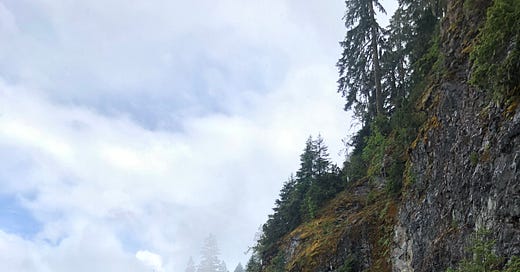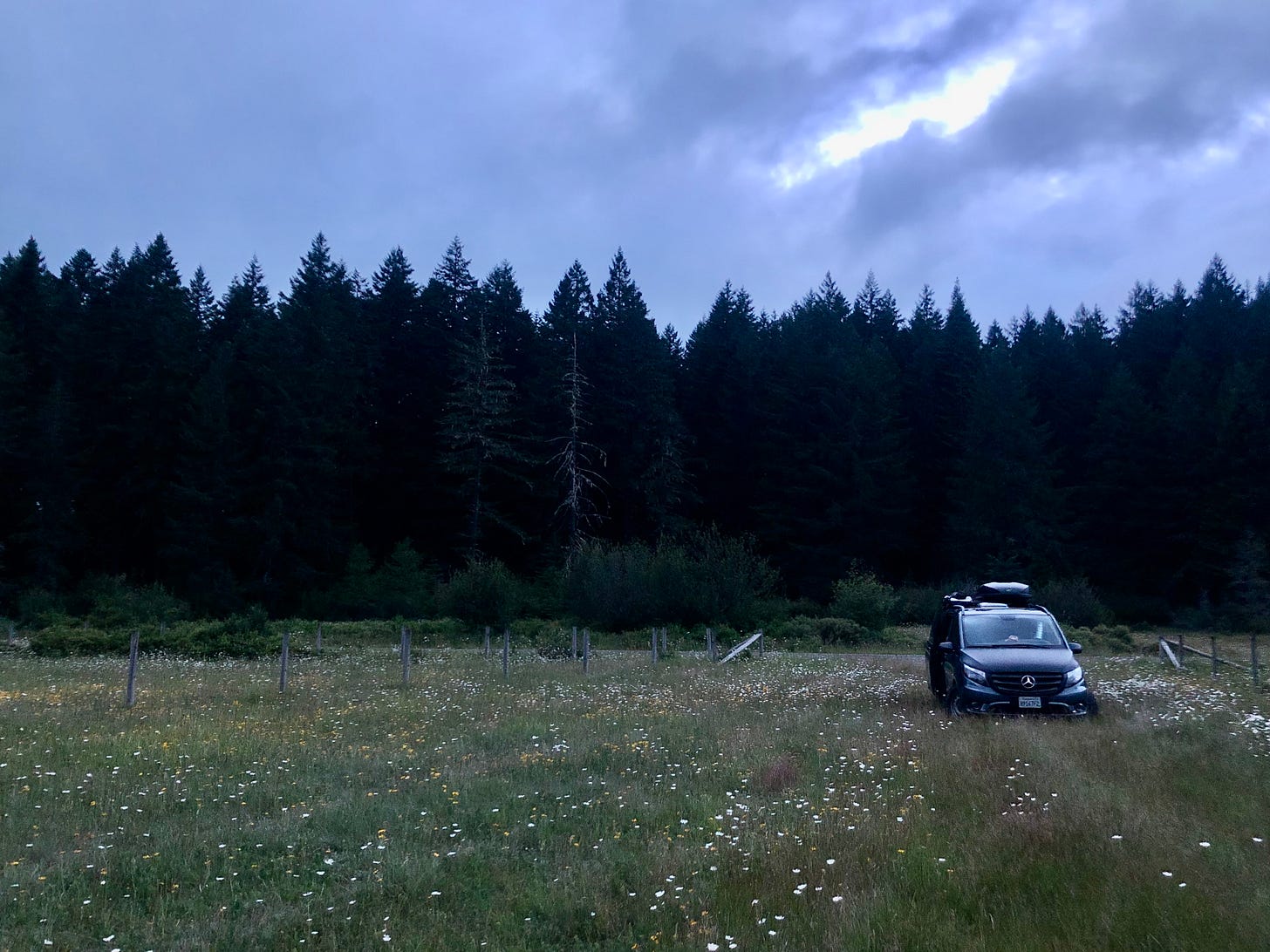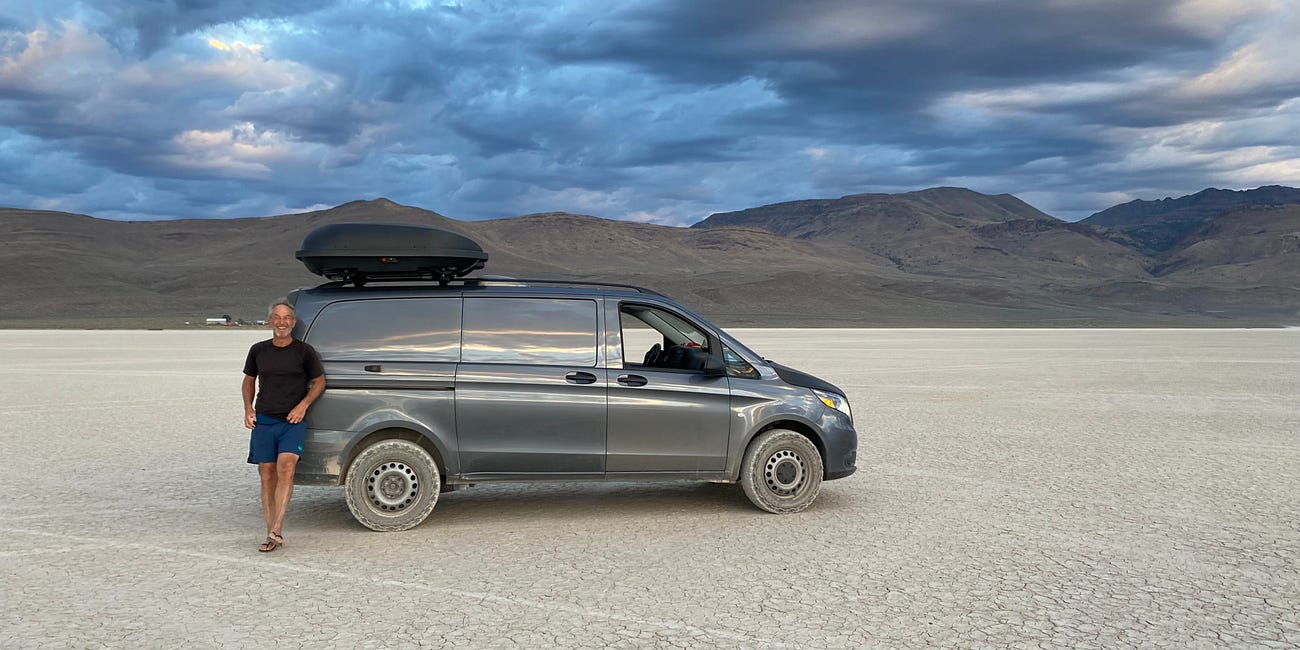Before I knew anything else about myself, leaving was the only thing that felt like me, and escape seemed like the only thing that mattered. Naturally I wanted to escape the house to get away from my parents’ control, but also to get away from the disruption and chaos swirling there around my sister. I also wanted to escape San Francisco; as proud as I was to be a native son of the City, and as attached as I was and still am to its unique and compelling geography—in those early years, even just crossing a bridge to Marin or the East Bay was a minor treason, and any mention of the arch-enemy of “LA,” which might as well have been most of the rest of the state of California, was out of the question. I was also stricken, and sickened, frightened, and exhausted by the plague of alcohol, drug, and violence-related injuries and deaths of my peers. I viewed San Francisco through a lens of love and death, a forever home shrouded in darkness that I constantly and feverishly worked to separate myself from.
Amongst those of us that did survive, there are many of my friends that purposefully left so as to distance themselves from this same dark past. I left in many ways, and many, many, many times, and yet now find myself here after all, happier than ever to be part of what is now a lifelong community—family, really—that began going back to elementary school—and still, I dream of leaving.
As I’ve said elsewhere, if nothing else, we get good at what we do, and I got damn good at leaving—so good that it became part of who I was—a core aspect of my personality and of how I was known to others. I was always leaving, and returning, and leaving again, touching down for a few days and then winging off somewhere else, and I reveled in what felt like the freedom of it, as well as the delight of finding my way around the world.
I’d return home for a while and then soon enough I’d find myself yearning or ready to leave, and then, before I knew it, in a familiar-smelling cab on the short run down 101 to SFO, threading my way through the airport maze, and then settled in my seat for takeoff, excited at the prospect of, if nothing else, collecting another minor chapter in my never-ending saga of points visited around the globe. I’m fond of saying that “I’ve been most places,” and it has made for some good material, but the fact is that almost always, once I did get away, soon enough I’d end up lonely, confused, and low again, wishing for a woman and a home—anywhere but here. I could not come to terms with the idea that one place, especially not the place where I’d already spent so much time by way of having grown up here—San Francisco—could possibly be the home that I needed.
In leaving home, I was searching for home, and yet unable—or unready—to see anywhere as home.
In early June of 2019 I packed up my apartment, put my things in storage, and drove east, headed for the Sierra Nevada. I have a photo from my parents that shows me lying in the pine duff of Tuolumne Meadows as an infant, perfectly happy and already accustomed at the age of three months to the ethereal alpine atmosphere at nine thousand feet above sea level. Those mountains run so deep in my blood that I have memories of those places even from before I could form memories, and so it’s often no more than to the mountains that I need as a destination when I go. As in fact yet again today, as I write these very words.
Over the course of the last several years and even more-so over the few months prior, I’d left everything from my past behind—my business, the most peaceful and loving home—and relationship—that I’d yet been blessed with, and—more than a year ago already—my lifelong love affair with drink. I was leaving again, but this time was different. I still felt the sense of inevitability, the pull of the road, an echo of my addiction to leaving that makes it perhaps too easy to leave, but now I know that I don’t need to leave, and I’m more comfortable than ever with the idea of making my home here, or somewhere. Much as with alcohol, I changed my relationship with leaving. I am still attached, but no longer addicted.
I made quick tracks across the flat, smogbound, overheated gap of California’s central valley, turned south for Fresno, and then east into the foothills. There, I spent several nights amongst the domes and valleys of a place called Tollhouse, where I joined several fellow pilots to fly our gliders high into the faultless azure sky, craning our necks over our shoulders eastwards toward the snowy peaks of the southern high Sierra. From there I drove north, around the west side of Lake Tahoe past Emerald Bay, north through Susanville, and then west through miles of plantation forest—still beautiful in its scale—to Mount Lassen and the Hat Creek Valley.
My van is smaller than most of the larger ones you might see out on the road, and I like it that way. It’s a fine little land yacht with a lovely custom bamboo bed frame, a solar-powered fridge and a little table that folds out when I need it. Traveling in the van is as simple as: find a meadow and park along the edge, cook some beans, crawl in the rack and sink into sleep, already dreaming of morning coffee. I often sleep better in that little can than at home in my own fine bed, and the freedom—the freedom!—to turn the key and roll on with the road and the wind—often, that is exactly what my body needs.
Movement is part of who I am. I need to move my body, and I need to be free to explore, to roam, to wander—and to find my way. Although we don’t often think of journeymaking as a skill, it feels to me that it’s one of our oldest trades, and a craft that I’m proud to be an expert in. Even though some of my own travel may have been needless and even addictive escape, it’s also true that I’m always ready for adventure, and more capable than most of cooking one up.
More importantly, all that leaving has offered me a certain kind of cleansing, and release. The practices of making ready with clothing and equipment so as to be just ready enough, while also knowing that there may well be something left behind, and also that that something is immaterial—and of the leaving the always larger set of belongings and physical shelter and comfort and static safety of home for the fluid and mobile and much more self contained, much smaller home that is carried with oneself while traveling—train us to have our affairs in order, know what is needed, let go, make do with less, intentionally move into the unknown, and, most of all, offer oneself shelter from within—and these meditations all derive naturally from movement and travel.
Continuing north from Lassen and Shasta, I joined a paragliding competition in the Applegate Valley, in southern Oregon, and then wound my way through the mountains north of there, stopping every day to run in the woods, swim in a creek and then soak up the sun. The Rouge, the Umpqua, the Willamette, the Colombia, and the vast meadows of the Malheur all passed before me and beneath my wheels as I rolled onwards.
A couple of weeks later, I found myself at a place called Priest Hole, a sage and gravel bend in the John Day River in eastern Oregon, on my way to Colorado. The glow of the sunset had faded over the scrub oak and the many-colored mesas and the silent, oily slide of the river, and I was at my little table, listening to the evening birds and writing in my journal.
I was writing the beginnings of what would become this book.
Sitting there inside my little rolling home—so tiny that I can’t even stand up inside—a message came to mind that I’d gotten a few days prior from a woman that I had once been engaged to.
“…isn’t it hard in moments without alcohol?” she wrote. “Who holds you?”
Of course, at one time it had been her that held me, but what became clear right there and then was that in the entire month since I’d left, on the road alone and with no permanent address, not once had the thought of home crossed my mind. I’d passed through—and beyond—my place of often-desperate and always-seeking need—and my answer to her question was, “I hold myself now.”
Now is the time
This is part of my book-length memoir AN ORDINARY DISASTER, one man's proof that despite what may seem like our inability to hear it, and all of our attempts to avoid it, we can all learn to listen to ourselves, and to act upon the inner voice of our self, our sanity and our soul.
Especially if you’ve been following my work with interest, now is the time to become a paying subscriber, to show your support as I move into the next chapter of the book’s journey, and of my journey with it.
Readers, fellow writers—if you want to support what I’m doing here at my work, now is the time to help spread the word!
Further reading
Sex at Dawn, live at Budokon
I’ve been on the road the past two weeks from where I’ve been living just north of San Francisco, up to Montana and back. Some of you may already know that I live part time on Vantasy Island, looping around the (mostly) western United States on backroads, aiming for top-notch boondocking sites, five-star trails and wild hot springs along the way. There’…
Adventure Doesn't Happen by Accident
Adventure is a bit of an enigma. It always felt like something that I wanted more of, and also that I didn’t quite understand how to get more of. Most of the stories about adventure that I read made it seem more like an accident than anything else—like adventure is something that happens to
E13 / Coming Out and Letting Go with Chris Ryan
Listen now (83 min) | Today I'm speaking with Chris Ryan, author of Sex at Dawn, Civilized to Death and a very active Substack called Tangentially Speaking with Chris Ryan as well as his long running podcast by the same name. I came across Sex at Dawn several years ago and that book has played a big part in cracking open my thinking about love, sex, and relationship, as it has for many many others. More recentl…
I’ve got some questions for you
What’s your own relationship with leaving — and with home?
What do you feel is the value of travel, and is getting good at it something that has real value?
Who holds you?
Please share, comment, restack, recommend, and click the little ♡ heart right there 👇🏻 if you dig this piece. I’d love to hear from you!








Holding ourselves is important. But isn't part of the allure of escape the freedom from *being held*? By a person. By a place. I find that my own restlessness has often been driven by that desire to keep my vulnerability hidden. It's like Greg Brown says: "If I open the door, you will know that I'm poor, and my secrets are all that I own."
It's such a universal trope. Tobias Wolff begins This Boy's Life with he and his mother poised for flight. The shift from flight to mindful inhabitation is also at the heart of my book. But I'm finding that it's never simple. Sometimes we stay put in places or situations that we'd rather flee, but we're there for others -- holding them, giving them an anchor that we might not feel we have ourselves. This is partly how I feel about my life in Pennsylvania. It's a fine place on its own terms, and I'll do what I can to embrace it as home while I must. But mostly I'm doing that for my kids. My real home is in Montana, the place that I felt was telling me to leave back in 1993. Now I know that there are people who would hold me there. Places that could hold me. Maybe someday I'll close that gap.
People always say that to love well you have to basically be fine on your own. Capable of holding yourself, as you say. Do you think that's true? Or do you find that your history of leaving makes it harder to let someone else in?
I like the the questions Bowen since I haven't taken to writing passionately. Even this feels a little forced. It's incredible what is normal when you know nothing else. I grew up in a working class poor neighbourhood. Our house was 600 sq ft and inhabited by six of us. My mother, father, two brothers and my uncle. My eldest brother was the first to leave when he had a psychotic episode when I was six and ended up institutionalized for most of his life. Next, my uncle died in our house fire when I was ten. My mother died of cancer when I was twelve. My other brother left home after completing a degree in education when I was fifteen. My father was for the most part absent-he was fifty when I was born-worked an afternoon shift and drank on the weekends. I left home at nineteen-bounced around a few rentals until I bought my first house at twenty-one. My father died three years later. I went on to own over twenty properties-mostly rentals and flips until settling into my current home thirty years ago this September. That coupled with having a full time job with limited vacation time and raising our two daughters didn't afford much time for travel. Also, having a tumultuous childhood made me a real homebody I believe. I did staycation before it was a thing. My home is a 3,400 sq ft bi-level-on seven wooded acres-backing on to a couple hundred acres with a man made lake-ten minutes from a Provincial park-one hour from the worlds 11th largest freshwater lake where we have had a cottage for several years. Am I crazy for feeling trapped? I think most of us 'men' are explorers by nature. Being tied down with work and family has been both a great source of joy and a great source of anxiety. I do believe it is possible to have it all, but extremely extraordinary.
My next chapter, hopefully this winter, is to explore options in central and South America. I have taken vacations to other places though I wouldn't call that travelling. But I can see the value.
Aside from family and friends, I still seek the short term comfort of alcohol in the form of craft beers (vanilla bourbon porter) I am making progress in reducing and maybe eventually total abstinence. I do believe in "get high on your own supply" and "straight street that great street".
Cheers for beers-or sparkling water!
Just noticed this share on notes feature so I'll give it a whirl.